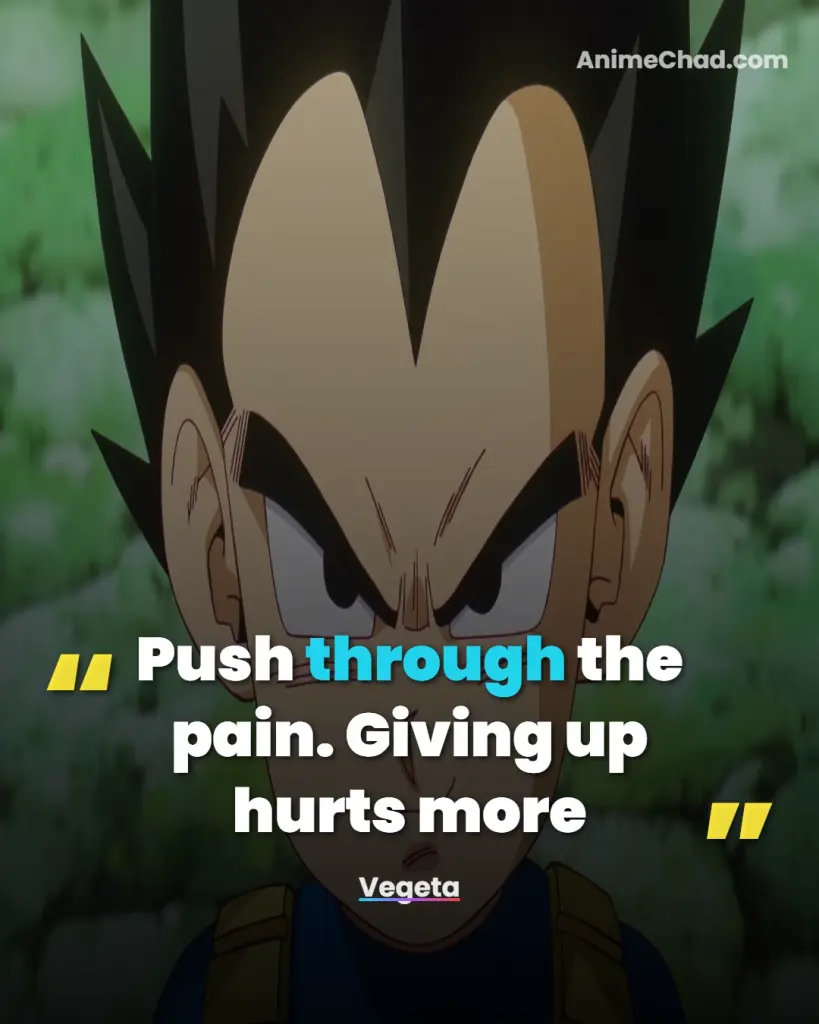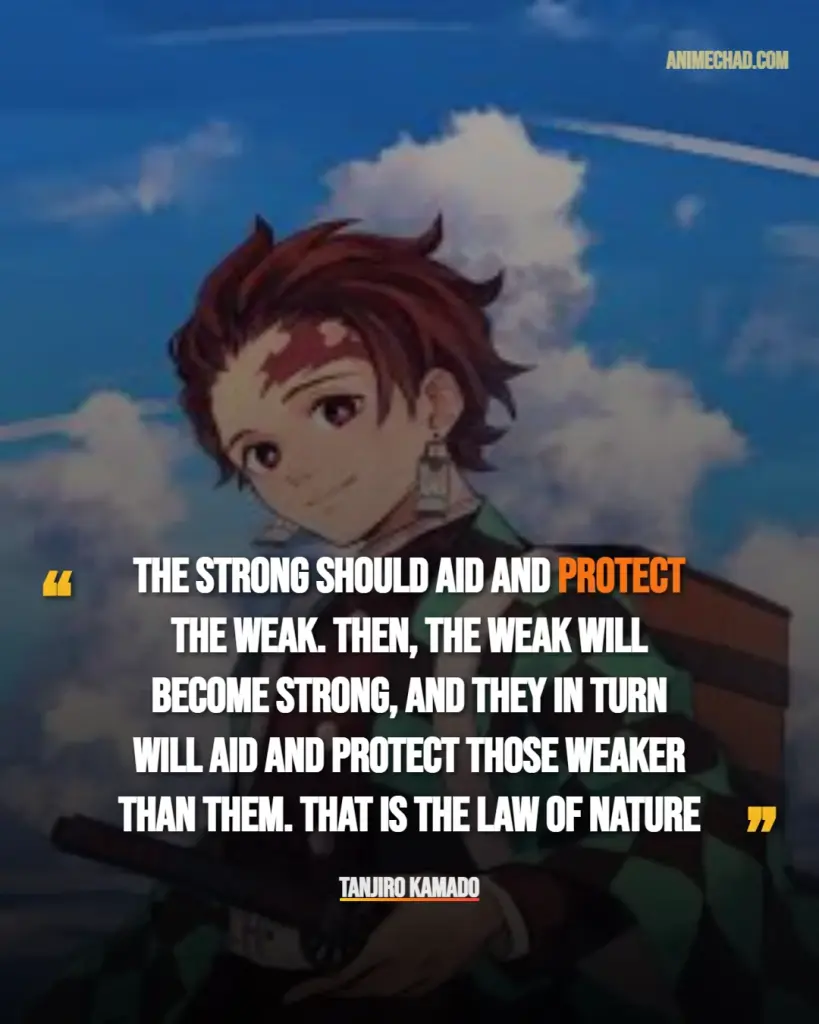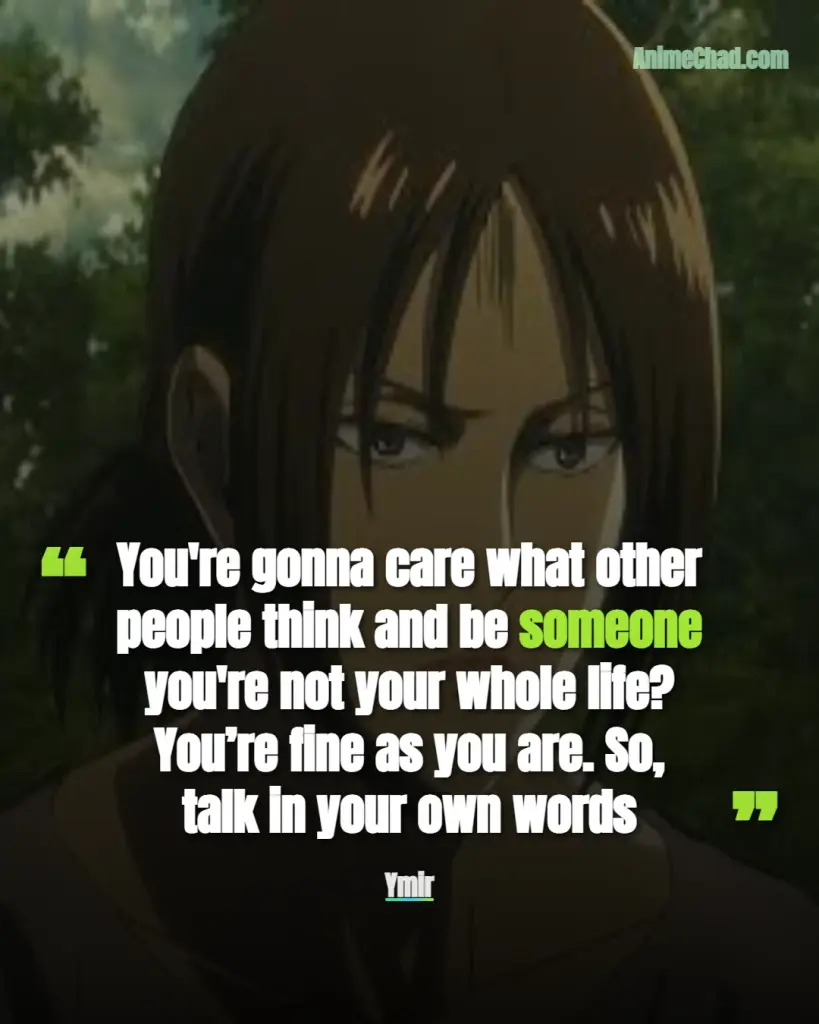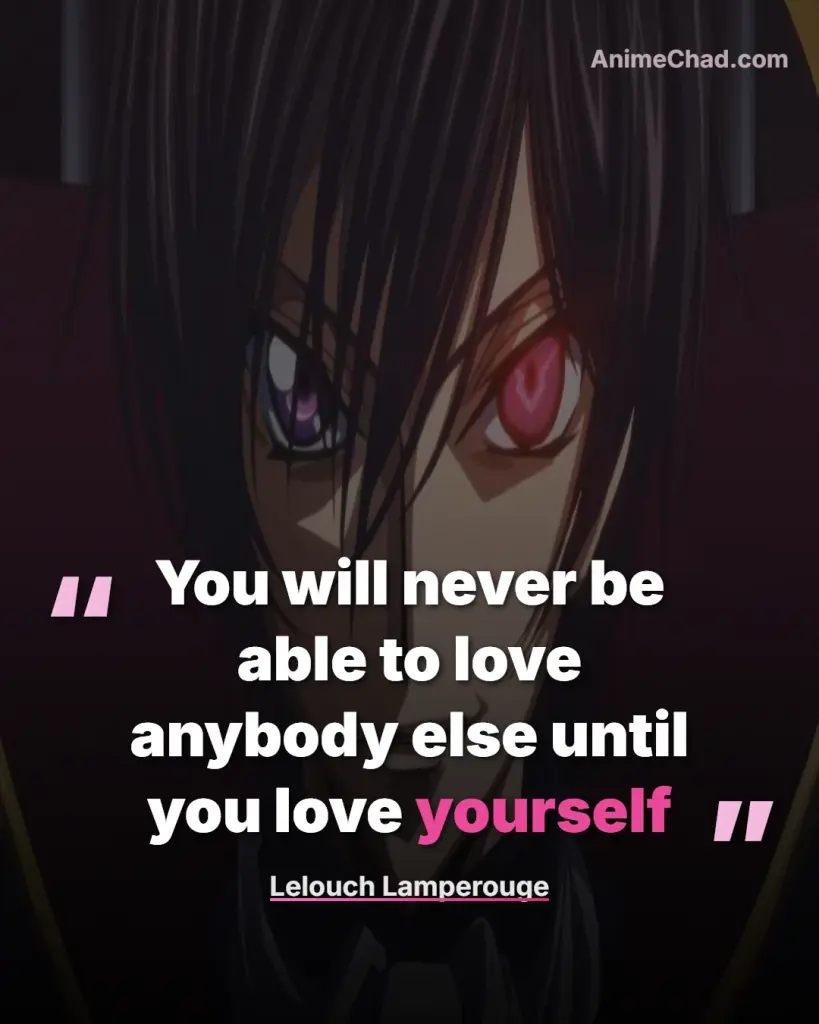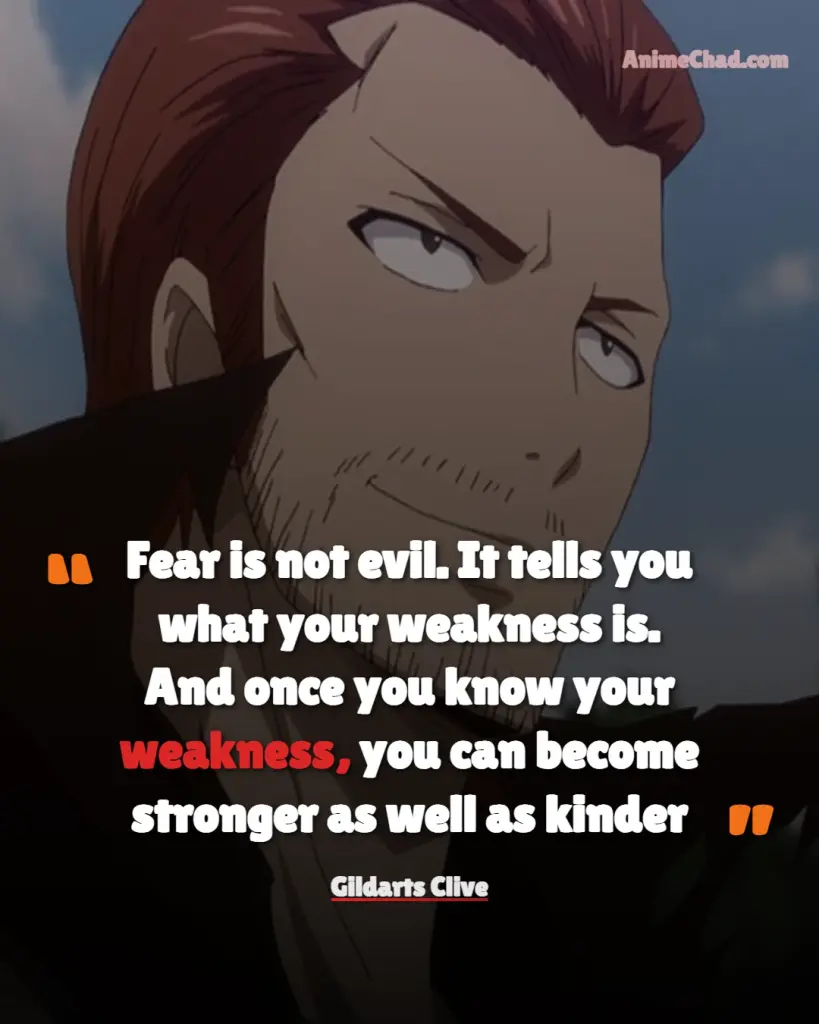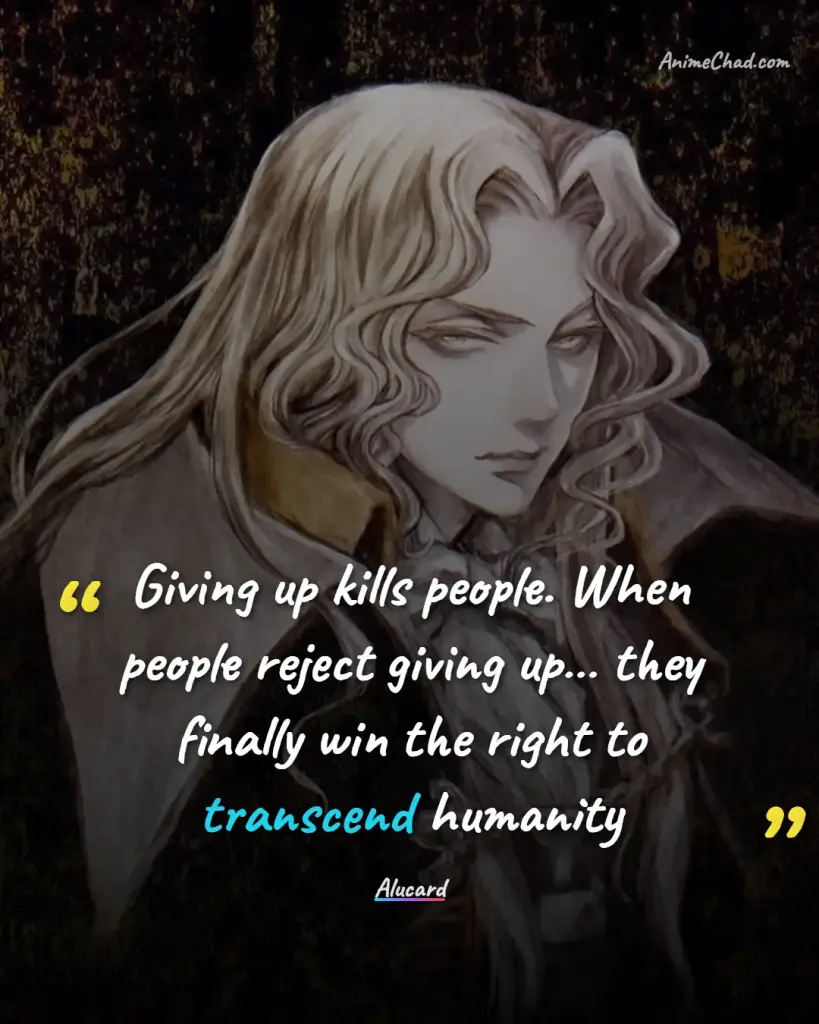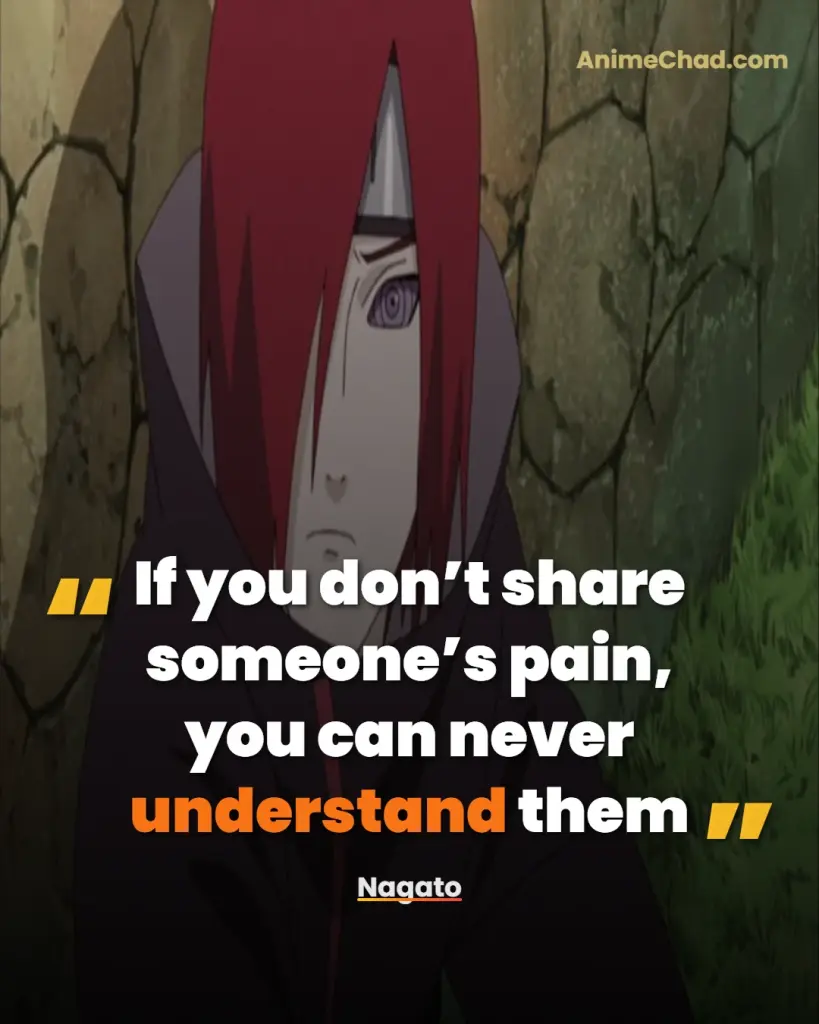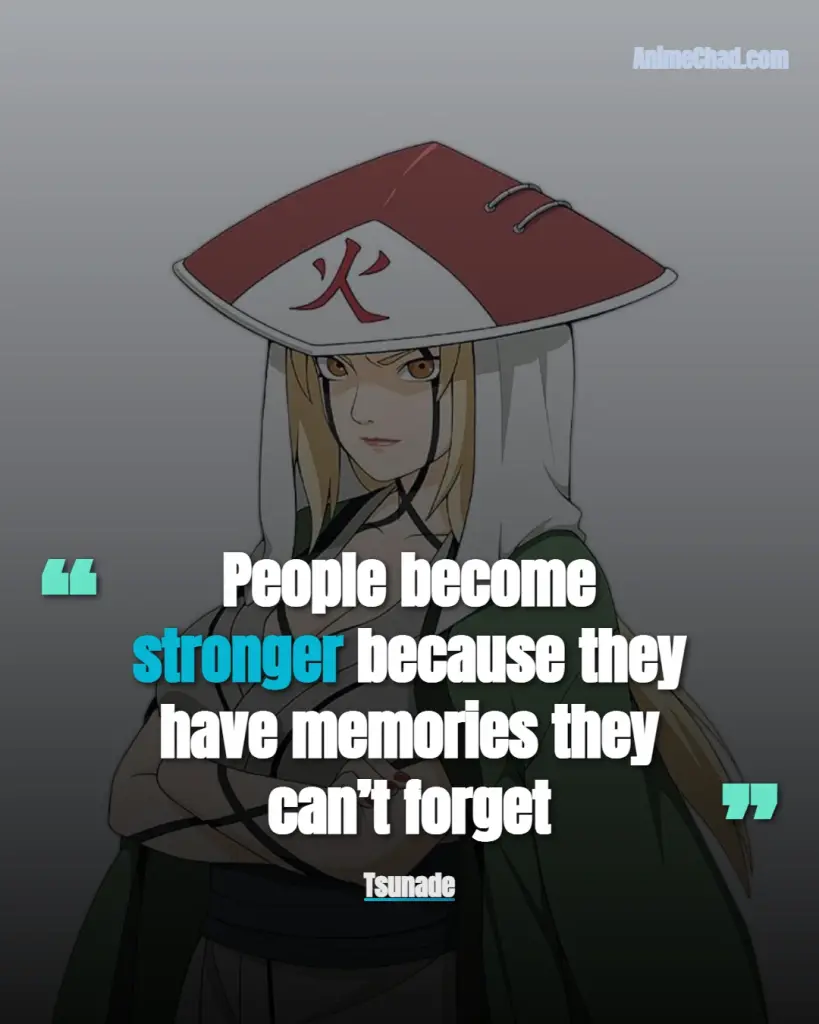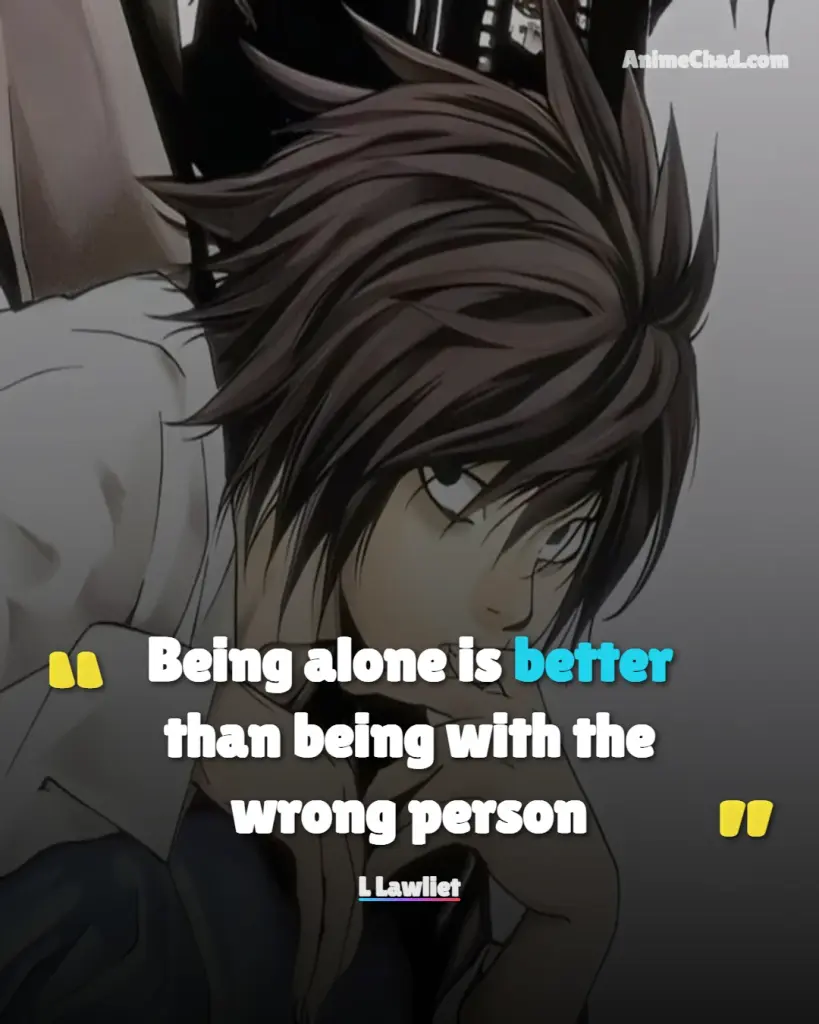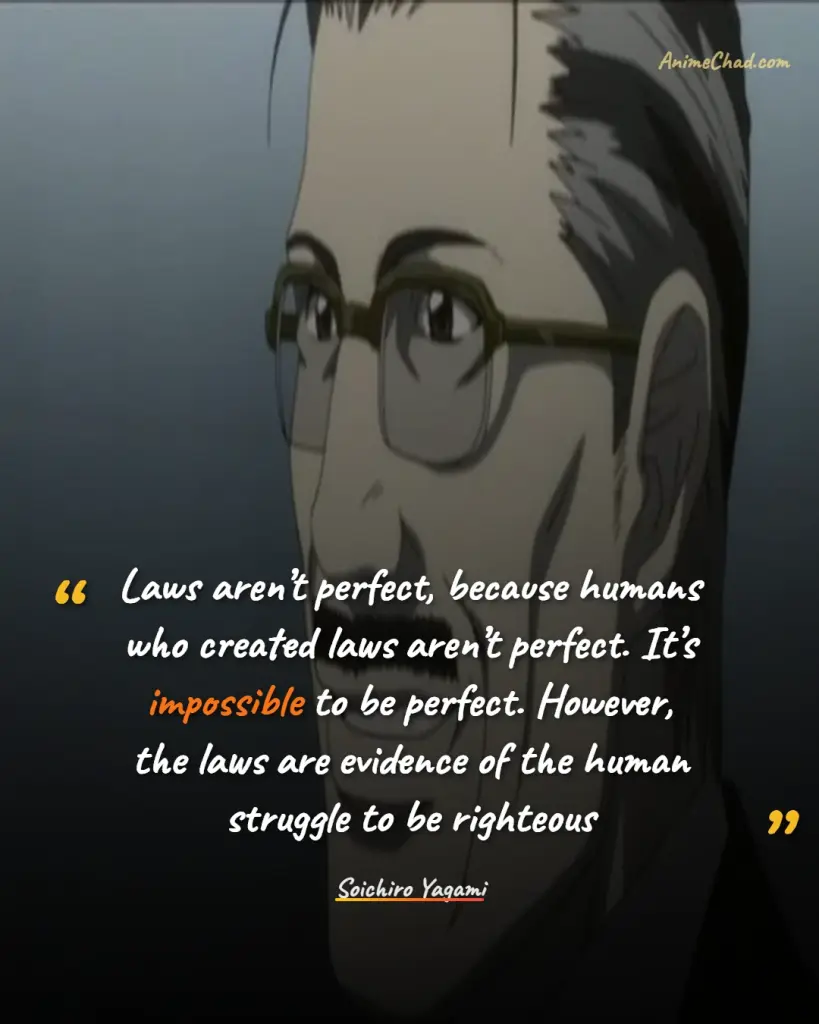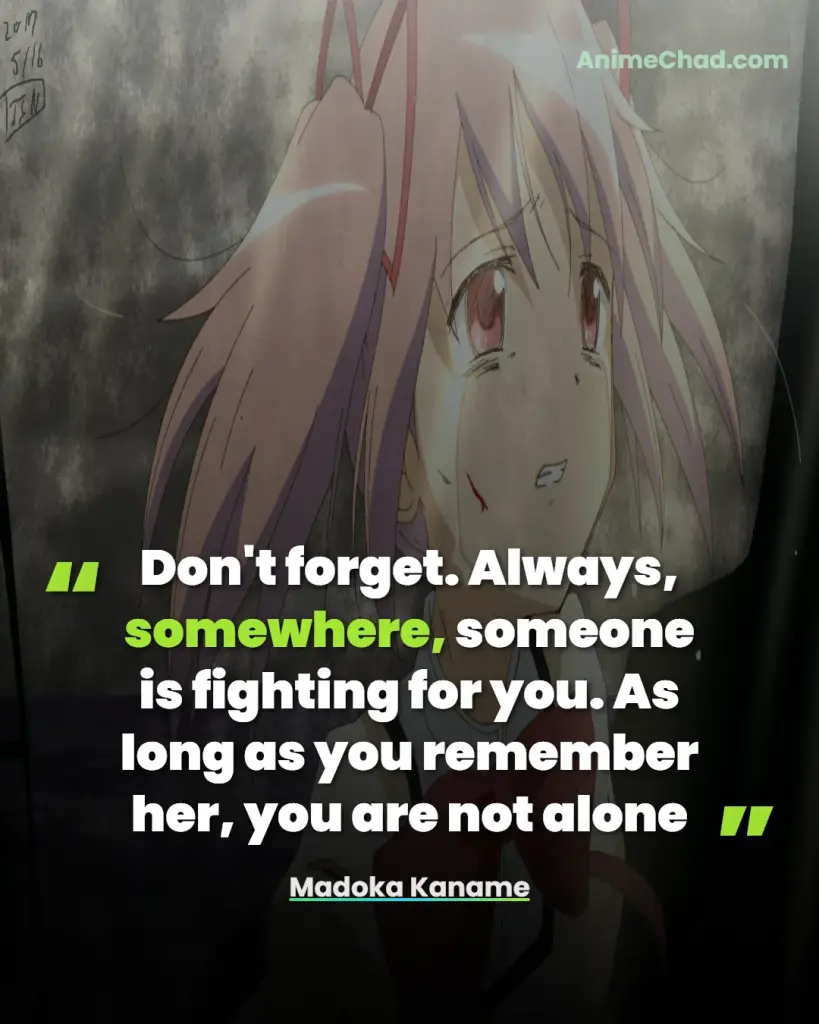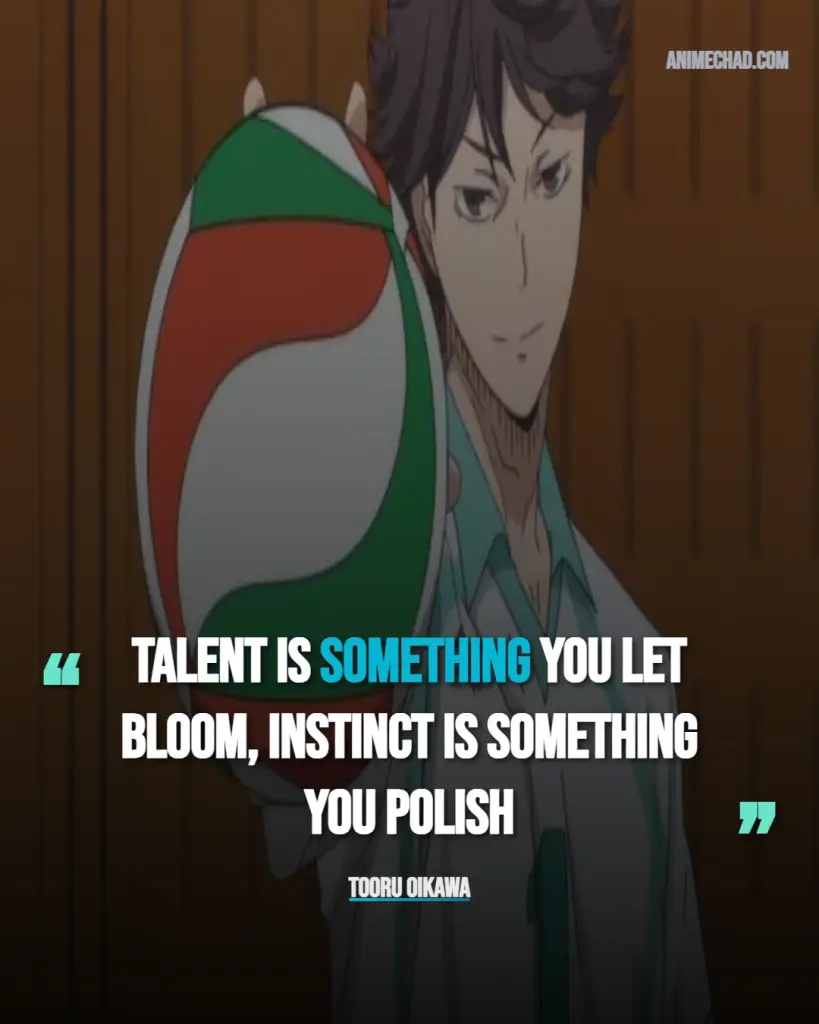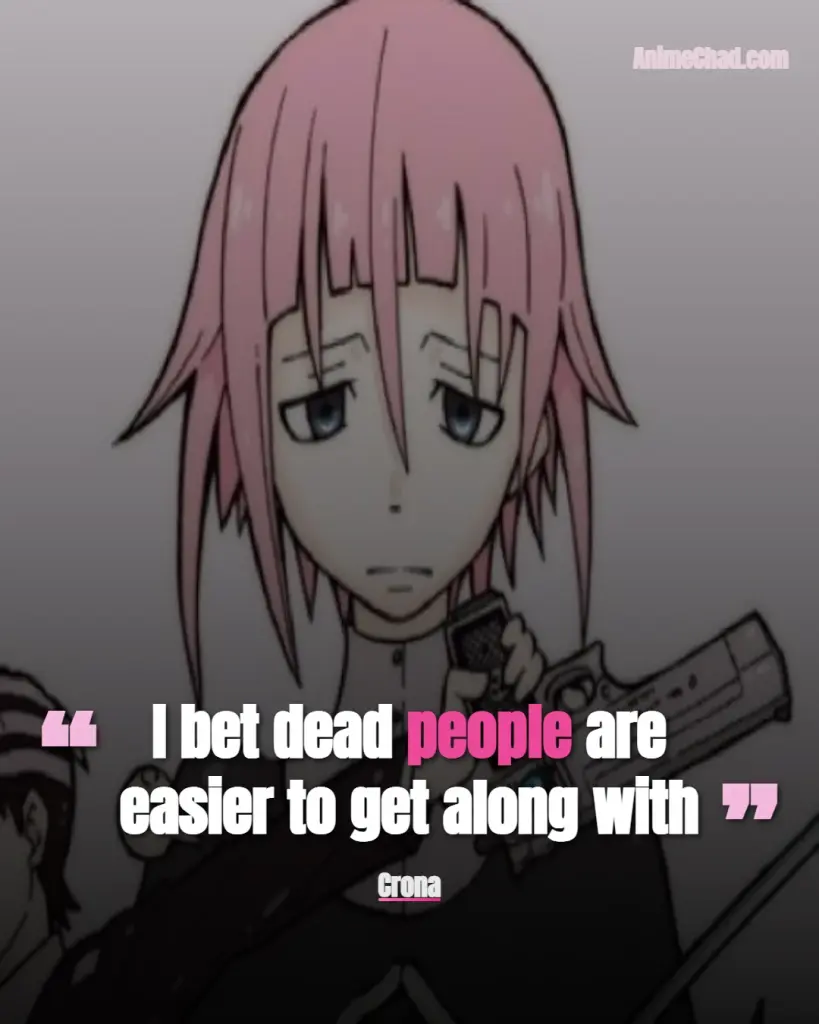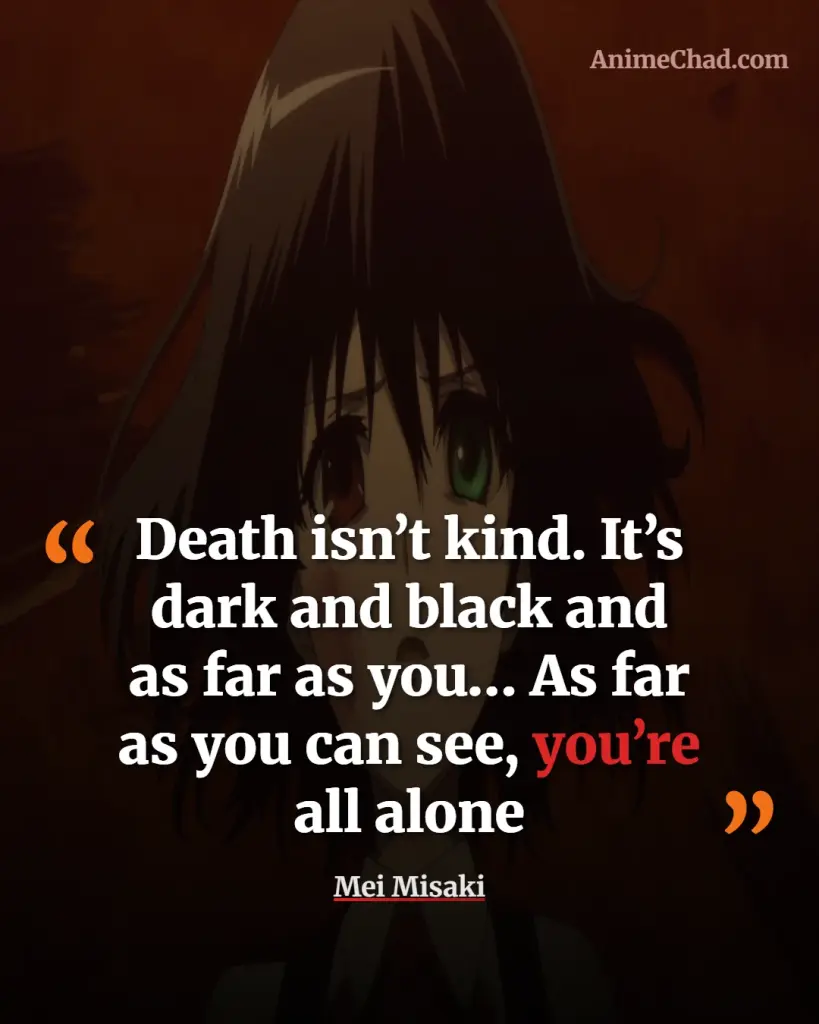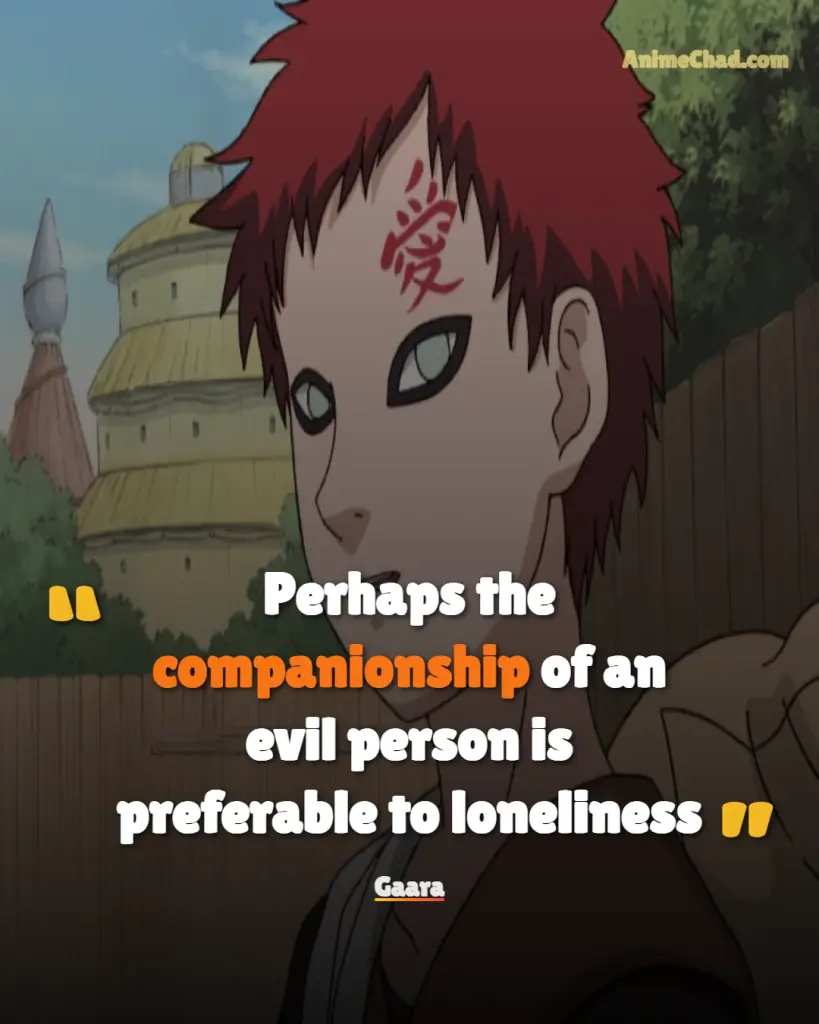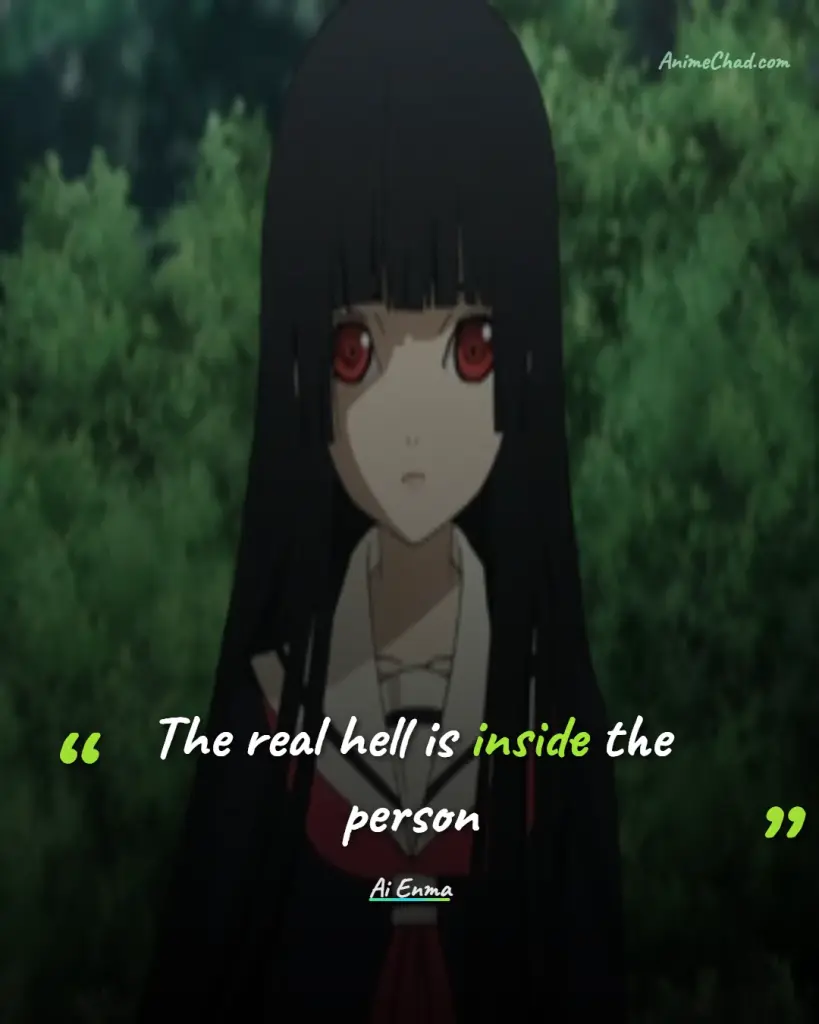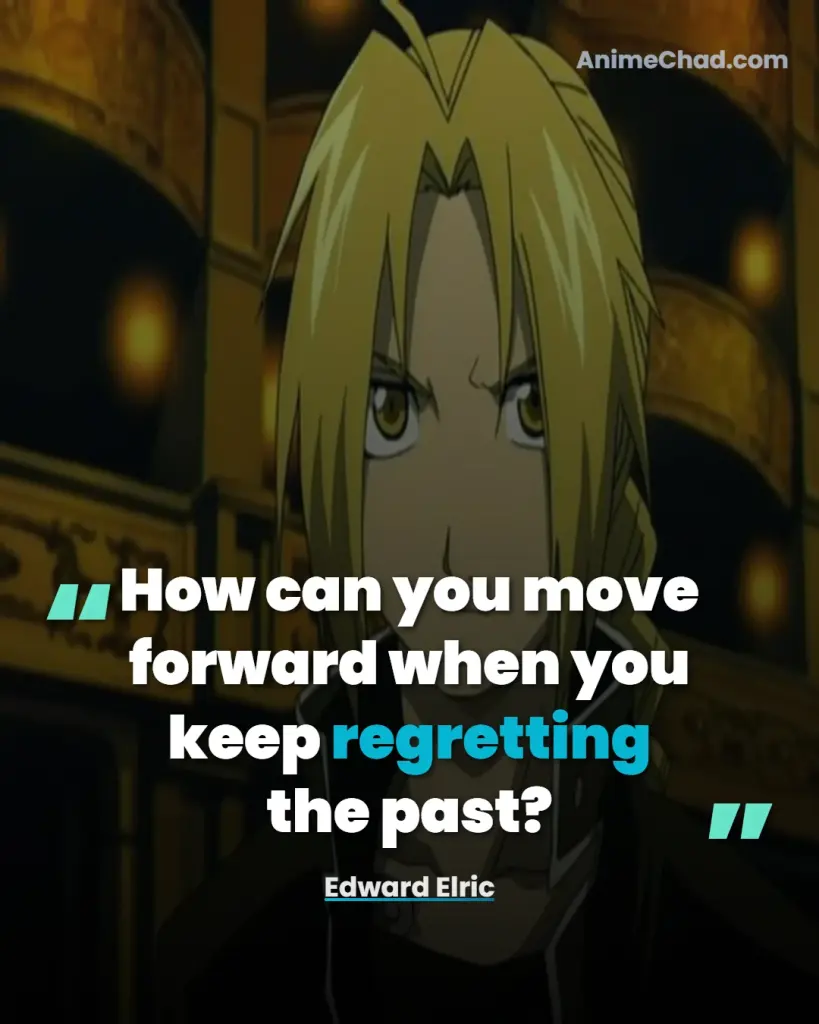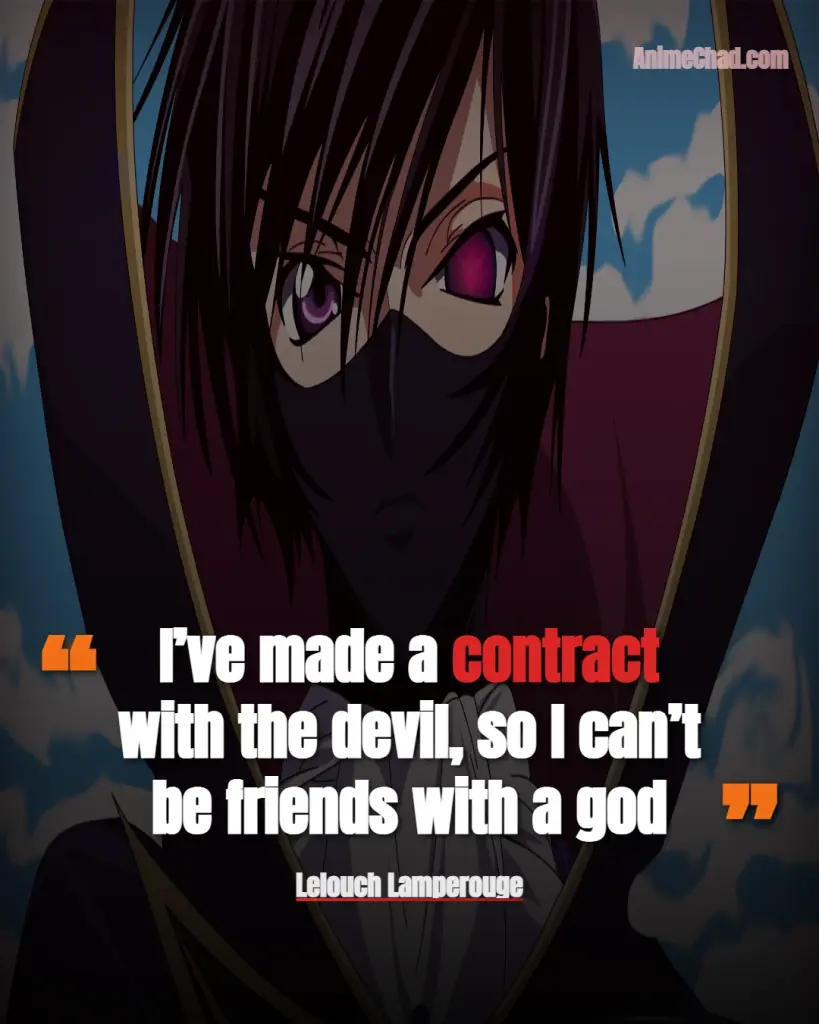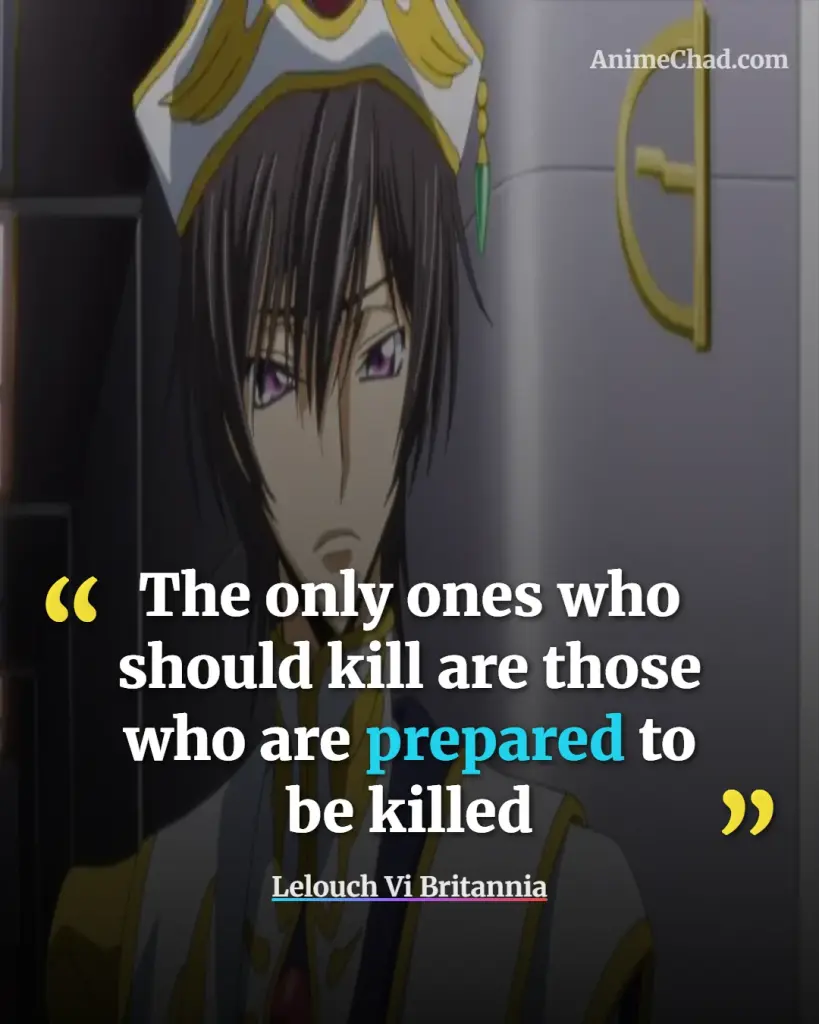Psychological anime delve into the complexities of the human mind, morality, identity, and the shadows of human nature, often through intense narratives in series like Death Note, Psycho-Pass, Tokyo Ghoul, and Attack on Titan. These shows explore themes of ethical dilemmas, inner turmoil, and the psychological toll of power and isolation.
This collection curates the best 25 quotes that highlight profound insights, character growth, and emotional depth, drawing from canonical moments across various arcs to inspire reflection on life’s darker aspects.
Push through the pain. Giving up hurts more
[Episode Details]: (Episode 291: The Ultimate Warrior Vegito)
[Speaker]: Vegeta
[Context]: Vegeta’s resilience in battle underscores personal growth from pride to endurance, tying into Dragon Ball Z’s theme of overcoming inner weakness (15 words).
The strong should aid and protect the weak. Then, the weak will become strong, and they in turn will aid and protect those weaker than them. That is the law of nature
[Episode Details]: (Episode 24: Tanjiro Unwavering Resolve Arc)
[Speaker]: Tanjiro Kamado
[Context]: In a peaceful training moment, Tanjiro’s words foster empathy and growth, reflecting Demon Slayer’s cycle of compassion amid demonic horrors (14 words).
You’re gonna care what other people think and be someone you’re not your whole life? You’re fine as you are. So, talk in your own words
[Episode Details]: (Episode 22: Declaration of War)
[Speaker]: Ymir
[Context]: Ymir urges authenticity in a tense confrontation, highlighting identity struggles and emotional liberation in Attack on Titan’s oppressive world (13 words).
There are certain things one can’t bear without changing one’s clothes
[Episode Details]: (Episode 11: The Menma Search Party)
[Speaker]: Chiriko Tsurumi
[Context]: Chiriko’s cryptic observation on adaptation during grief reveals character evolution from observer to participant in Anohana’s healing arc (12 words).
You will never be able to love anybody else until you love yourself
[Episode Details]: (Episode 25: Rebellion)
[Speaker]: Lelouch Lamperouge
[Context]: Lelouch’s introspective advice amid rebellion emphasizes self-acceptance, driving his arc from vengeance to deeper relational understanding in Code Geass (14 words).
Fear is not evil. It tells you what your weakness is. And once you know your weakness, you can become stronger as well as kinder
[Episode Details]: (Episode unknown: General series quote)
[Speaker]: Gildarts Clive
[Context]: In a mentor’s calm guidance, this promotes emotional growth, connecting Fairy Tail’s battles to themes of vulnerability and kindness (13 words).
Giving up kills people. When people reject giving up… they finally win the right to transcend humanity
[Episode Details]: (Episode 125: The Dawn of the Heart)
[Speaker]: Alucard
[Context]: Alucard’s dark reflection during combat highlights transcendence through perseverance, evolving his monstrous identity in Hellsing’s horror-laden narrative (12 words).
If you don’t share someone’s pain, you can never understand them
[Episode Details]: (Episode 220: Pain’s Assault Arc)
[Speaker]: Nagato
[Context]: Nagato’s painful revelation in battle fosters empathy, marking his shift from villainy to tragic understanding in Naruto’s cycle of hatred (14 words).
Whatever you lose, you’ll find it again. But what you throw away you’ll never get back
[Episode Details]: (Episode 48: The Wandering Twilight Arc)
[Speaker]: Himura Kenshin
[Context]: Kenshin’s regretful wisdom in a quiet moment underscores redemption and loss, central to Rurouni Kenshin’s atonement theme (12 words).
People become stronger because they have memories they can’t forget
[Episode Details]: (Episode 366: The Raikage vs. Naruto?!)
[Speaker]: Tsunade
[Context]: Tsunade’s motivational words during war preparation highlight resilience from trauma, aiding her growth as a leader in Naruto (13 words).
Don’t be so quick to throw away your life. No matter how disgraceful or embarrassing it may be, you need to keep struggling to find your way out until the very end
[Episode Details]: (Episode unknown: General series quote)
[Speaker]: Itachi Uchiha
[Context]: Itachi’s dying advice imparts survival’s emotional weight, revealing his sacrificial development in Naruto’s themes of endurance and forgiveness (13 words).
There comes a time when a man must stand and fight. And that is when his friends’ dreams are being laughed at
[Episode Details]: (Episode 398: Dressrosa Arc)
[Speaker]: Usopp
[Context]: Usopp’s brave stand in battle shows growth from cowardice to loyalty, embodying One Piece’s friendship amid adventure (12 words).
Being alone is better than being with the wrong person
[Episode Details]: (Episode 25: Impostor)
[Speaker]: L Lawliet
[Context]: L’s solitary insight during investigation exposes isolation’s pain, deepening his enigmatic character in Death Note’s moral cat-and-mouse game (13 words).
Laws aren’t perfect, because humans who created laws aren’t perfect. It’s impossible to be perfect. However, the laws are evidence of the human struggle to be righteous
[Episode Details]: (Episode 35: Finale)
[Speaker]: Soichiro Yagami
[Context]: Yagami’s reflection on justice in climax critiques flawed humanity, marking his ethical evolution in Death Note’s power corruption theme (13 words).
Don’t forget. Always, somewhere, someone is fighting for you. As long as you remember her, you are not alone
[Episode Details]: (Episode 12: Puella Magi Madoka Magica)
[Speaker]: Madoka Kaname
[Context]: Madoka’s comforting words in despair provide emotional solace, driving her sacrificial growth in Madoka Magica’s fate and connection themes (13 words).
Talent is something you let bloom, instinct is something you polish
[Episode Details]: (Episode 25: Nationals Arc)
[Speaker]: Tooru Oikawa
[Context]: Oikawa’s rivalry-fueled advice in match highlights self-improvement, evolving his competitive nature in Haikyuu!!’s perseverance narrative (11 words).
I bet dead people are easier to get along with
[Episode Details]: (Episode 8: Soul Eater)
[Speaker]: Crona
[Context]: Crona’s dark humor reveals isolation’s trauma, signifying early steps toward trust and development in Soul Eater’s madness themes (13 words).
Death isn’t kind. It’s dark and black and as far as you… As far as you can see, you’re all alone
[Episode Details]: (Episode 12: Another)
[Speaker]: Mei Misaki
[Context]: Mei’s eerie description amplifies loneliness’s horror, connecting to Another’s curse and her detached character’s subtle vulnerability (12 words).
But you’ve finally come to realize it now, haven’t you? Only one thing is equal for all, and that is death
[Episode Details]: (Episode 26: Monster)
[Speaker]: Johan Liebert
[Context]: Johan’s chilling philosophy in confrontation exposes equality in mortality, enhancing his manipulative psyche in Monster’s ethical darkness (12 words).
Perhaps the companionship of an evil person is preferable to loneliness
[Episode Details]: (Episode 220: Naruto)
[Speaker]: Gaara
[Context]: Gaara’s reformed view post-battle shows growth from isolation to understanding bonds in Naruto’s redemption arc (11 words).
The real hell is inside the person
[Episode Details]: (Episode 1: Hell Girl)
[Speaker]: Ai Enma
[Context]: Ai’s ominous warning sets internal torment’s tone, reflecting her cursed existence in Hell Girl’s vengeance and guilt themes (12 words).
How can you move forward when you keep regretting the past?
[Episode Details]: (Episode 37: Fullmetal Alchemist: Brotherhood)
[Speaker]: Edward Elric
[Context]: Edward’s motivational push aids brother’s growth, tying to alchemy’s consequences and personal evolution in the series (11 words).
Reality is cruel, so I’m sure lies are a form of kindness
[Episode Details]: (Episode 13: Oregairu)
[Speaker]: Hachiman Hikigaya
[Context]: Hachiman’s cynical insight in social dilemma reveals his guarded development, exploring authenticity in youth’s emotional struggles (12 words).
I’ve made a contract with the devil, so I can’t be friends with a god
[Episode Details]: (Episode 25: Code Geass)
[Speaker]: Lelouch Lamperouge
[Context]: Lelouch’s defiant stance in climax underscores moral isolation, culminating his tragic arc of power and sacrifice (12 words).
The only ones who should kill are those who are prepared to be killed
[Episode Details]: (Episode 1: Code Geass)
[Speaker]: Lelouch Vi Britannia
[Context]: Lelouch’s early creed in rebellion establishes accountability’s weight, driving his revolutionary growth amid ethical conflicts (11 words).


